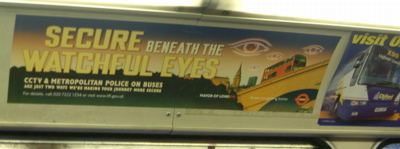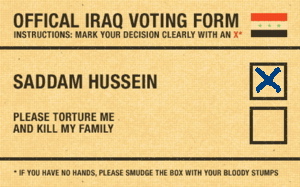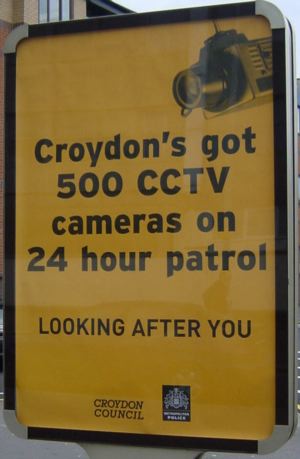When looking at the world around us, it is impossible to constantly take everything upon which we must form an opinion back to first principles: life is simply too short for that.
But to decide if a dog might be about to bite you, one must have at least some understanding of the nature of dogs and how they might act differently to cats or parrots or foxes or hippopotamuses (the later being a rare sight in London it must be noted). Whilst the propensity of a Golden Labrador and a Staffordshire Bull Terrier to chomp on you varies considerably, both are nevertheless dogs and thus act within the range of doglike behaviours to which their natures impel them.
And so to understand anything done by a state, the workings of its parts and how they are likely to impact upon your life, one must understand some of the basic underlying truth about the nature of states. All states are not exactly the same just as all dogs are not exactly the same: whilst a libertarian such as myself might lambast the United States or the United Kingdom for many and varied sins, it is clear to all but the ‘rationality impaired’ that the USA and UK are currently significantly less harmful to their subjects than the likes of Iraq or Myanmar or China or Belarus or Zimbabwe.
So when I recently wrote a couple articles about posters by a government body (Transport for London) aimed at garnering public support for increasingly panoptic mass surveillance, some commenters (a minority it must be said) took exception to the idea there might be anything sinister about the vast proliferation of CCTV cameras in Britain to which the state has access. Britain after all, is not Nazi Germany or North Korea, so what is the problem?

Trust us. Constantly. The second you step out of your front door.
Nevertheless, all states, like all dogs, do indeed share some common irreducible aspects to their natures. Without getting into the intractable and interminable minarchist versus anarchist inter-libertarian debates of the legitimacy of any form of state, it is fair to say all modern states however democratic and ‘liberal’ suffer from a type of progressive moral cirrhosis. Take the remarks in the Telegraph regarding Britain’s socialist National Health Service:
Rather as in the old Soviet Union, many managers now think it safer to fiddle their returns rather than send bad news back to the centre. This week, for instance, the Department of Health claimed that no one now has to wait more than 24 hours in accident and emergency, a claim that was flatly contradicted by the BMA [British Medical Association]. It has got to the point where we now routinely expect schools to massage their test results and hospital managers to fiddle their waiting lists. No wonder people’s everyday experience of schools and hospitals so rarely seems to accord with the glowing reports presented by the Prime Minister and his colleagues in the House of Commons.
Yet Britain is not the Soviet Union and although it does imprison the most number of people per capita in Europe, there is no network of gulags or mass murders to enforce the governing party’s supremacy. Unlike Saddam Hussain, who holds sham elections in which 100 percent (‘if not more’) vote for him, in the democratic western world, elections are free and fair. Well, sort of. They just gerrymander the way people vote. Of course this is not the same as what Saddam Hussain does but it is certainly the same species of behaviour.

Democracy, Iraqi style: happiness is mandatory

Democracy, American style: representing who exactly?

Democracy, British style: looking after you, like it or not.
(Photo: Mike Scott)
So why, given that we are constantly told how superior democratic states are to their benighted totalitarian counterparts, do we see time and time again the same toxic behavioral characteristics, albeit manifested in less homicidal ways?
It is because all modern states exist primarily to do things. By this I mean do more than just guard the boundaries of society (i.e. keep out marauding Turks, put out fires, run law courts). All states have always done things, such as waged wars, built aqueducts or whatever, but not all states have existed to primarily do things beyond aggrandise the King/Tzar/Chief/Khan/Sultan etc… stay out of the state’s way and it tended to leave you alone. That did not mean that such states were not capable of acts of breathtaking tyranny, just that unlike an overtly interventionist state such as we all live under these days, to a large extent the pattern of your life was social rather than political: if your children were schooled, it was because that was the custom and it seemed the thing to do, rather than because the state threatened you with arrest if you did not acquiesce to your children being conscripted for mandatory collective education.
Much like dogs, some states are more vicious than others but ultimately the people who grasp the levers of power do so in the knowledge that they are there to do things and that knowledge alone is the source of their inevitable corruption by the system they are part of. That is why in the long run it does not matter which state wants to envelop their subjects in panoptic surveillance, because in the end no state can be trusted to have such information at its casual disposal because states cannot be trusted to act other than as states, and all states are to a lesser or greater extent corrupt. It is the nature of the beast.




bet your ass is gonna get tons of hits now that your linked on a link from drudge report, you pinko.
Pinko, eh? Now that is a novel experience!
If you want to pull off a job, have an attractive lady accomplice adjust her garter and every camera around will be turned on her.
Well written. We nned people like you in the United States. Keep the faith!
Well said. There’s nothing more libertarian about a democracy than a monarchy. It is my opinion that democracy is the cancer that has given rise to the 20th century style states that wage World Wars, mass murder millions of their own citizens, and control every aspect of life.
Kings and queens become harmless once individuals in civil society recognize that they don’t have any sort of divine providence. However, democracy sanctifies massive violations of property rights. They next evolution towards freedom will come when individuals recognize that the “will of the people” is as much a sham as the “divine providence of the King.”
As you pointed out, Britain is not Nazi Germany, but then before Hitler came to power Germay was not Nazi. What if Hitlers’ Germay or Stalin’s Russia had the technology to spy on the people that we have today? It is the nature of government to increase it’s power. It can only do that by taking power away power from the people. We are seeing more and more cameras here in the United States. There is no shortage of fools here that think this is a good thing. If you think that you can trade freedom for safety, you will have neither.
Do as I watch not as I do (sic)
“Let it be known that British liberties are not the grant of princes and parliaments” (John Adams, 1765)
So let put cameras in every MPs and Ministers chaufer driven mover. What is good for the peasants must be good for the lords too …
A government which watches Peter to dob Paul can always depend on the support of big brother …
– George Bernard Shaw misquoted
Excellent points to be made for personal rights and privacy. This disturbing issue is not just a concern for Londoners.
Americans should also be concerned about the means of surveillance on behalf of their ‘safety’.
The potential for abuses is most disconcerting to this American.
Perhaps states can be viewed in informational terms as well as just ‘doing things’. State formation and expansion appears to involve, through its institutions and regulatory apparatus, the capture of information/knowledge, its policing, application and redeployment in a monopoly or licensed form.
Whereas, these posters are an overt symptom of this movement, the insidious nature of the state’s expansion comes through the licensing and control of former spheres in civil society: education, social services, and increasingly, the universities.
That is why states prefer the regulation of professions over self-regulation.
Surveillance cameras in *public* spaces are not illegitimate, or injurious to private rights. When people step into the public domain they willingly expose themselves to scrutiny by other people. The state can, and does harm people’s rights, in many ways, but surveillance camers isn’t one of them. If cameras helped reduce crime (I’m not shure they do), they would be wellcome.
So, don’t cry “wolf” all the time, concentrate on exposing wotrhy topics like: “licensing and control of … education, social services, and increasingly, the universities”, etc.
Perhaps what is needed is a variation on the “sniper ethic”, perhaps something like “One shot, One Camera”.
Interesting suggestion there that surveillance cameras in themselves are not wrong. I wonder if Jacob feels governments relying on networks of informers is wrong? After all, if you don’t do anything bad, then you have nothing to fear, right?
I see two problems with cameras – 1: they are controlled by governments, and government officials have privileged access to images from cameras (I think if we all had equal access and control, there might be less to fear – an image from a security camera is on one of my webpages) – 2: if we already have (in the opinion of many) too many rules and laws, it might be that almost everyone is each day infringing some minor regulation, and so constant surveillance might become a way to control us more by making previously unenforceable regulations enforceable, and thus finding a way to fault any individual who needs to be controlled. They might give officials more leverage over honest people than over full-time thieves, for example.
Are the people on this site aware of New York’s radical street theatre group the Surveillance Camera Players? They were performing street theatre for the entertainment of surveillance-camera monitors during the 1990s.
Governments do and *must* rely on networks of informers to combat real crime and terrorism. It is not how you gather information that matters, but what you define as crime.
Everyone has potential access to the scene of the surveillance camers – you can just be there, or you can put your own camera wherever you whish, in the public domain. Images of government surveillance cameras should be accesible to everyone on demand, but they need not be banned.
Newnan and LaGrange, two small cities in Georgia, U.S.A. have installed surveillance cameras on the utility poles all over town, even residential areas. They say it’s to protect the citizens.